Something's rotten in the Kingdom of Denmark
Greenland, often dismissed as an administrative nuisance for Denmark, is now coveted by the American empire, Silicon Valley utopians, and MAGA diehards.
Denmark rarely makes the headlines in the United States. But in late August, its foreign minister summoned the top US diplomat for a very undiplomatic conversation. Denmark’s national broadcaster, DR, had just reported that at least three American citizens linked to Donald Trump were covertly operating in Greenland, quietly trying to recruit locals into a separatist movement to drive a wedge between Copenhagen and Greenland, which operates as an autonomous territory within the Kingdom of Denmark.
For a NATO ally to accuse Washington of subversion is no small thing. The White House’s response — “we think the Danes need to calm down” — only served to underscore how far the relationship has shifted under the current administration.
Greenland is vast: It’s three times the size of Texas, but sparsely populated with just 57,000 people. Nearly three-quarters of its landmass is blanketed in ice. Why would America care about Greenland at all, much less try to fracture it from Denmark? The logic is imperial and calculated.
What matters for the empire lies beneath the ice as well as its location. Greenland holds some of the world’s richest deposits of rare earth minerals, which have now become critical to the production of everything from smartphones to fighter jets. It is also home to Pituffik Space Base, a cornerstone of America’s missile defense shield. And, as Arctic ice recedes, new shipping lanes between Asia and Europe will hug Greenland’s coast.
On top of those strategic reasons, some Silicon Valley technocrats have their eyes on Greenland as the potential home of an autonomous ‘network state,’ an internet-based community that would exist outside any traditional government. (For more insights into this, see our two-part series on ‘the utopians.’ — Part One & Part Two)
Greenland as a frontier for techno-utopia isn’t a wholly new fantasy. In the 1930s, the Technocracy Inc. movement called for engineers and scientists to take the wheel of society. They envisioned a “Technate of America” — an energy-managed domain stretching from the Arctic down to Panama, governed not by politicians but by technocrats distributing abundance via scientific accounting. Greenland sat at one ideological pole of that vision.
If Greenland could be peeled away from Denmark, the United States would face fewer obstacles in bringing these dreams to fruition. Trump once suggested the US should simply buy the island, and later said he might just take it by military force. Fomenting separatism would create leverage for his designs.
Some of America’s efforts to influence the separatist movement have been happening in the shadows, as indicated by the three individuals who were recently accosted by Danish officials. But parts of the operation are also taking place right out in the open.
In February 2025, an American named Thomas Dans (pictured below, at right) went to Ivittuut Cemetery, in southern Greenland, to lay a wreath at a memorial for the US troopship Dorchester, which was sunk off the coast of Greenland by a German torpedo in 1943. Dans called his visit an act of remembrance for the hundreds of men lost in that incident. On the surface, an act of patriotism.
But Dans is more than a WWII history buff. A former Treasury official and US Arctic commissioner, he now runs a murky group called American Daybreak, which oddly has very little web presence. Greenlanders call Dans “Trump’s man in Greenland.” Through American Daybreak he has arranged high-profile visits — Donald Trump Jr. in January, Vice President J.D. Vance in March — and escorted Greenlanders sympathetic to the separatist cause to the White House. He insists he’s only a private citizen, but he acts more like a shadow envoy.
Dans is only one part of a wider American orbit around Greenland.
Still awaiting Senate confirmation is Trump’s pick for ambassador to Denmark, Kenneth Howery, a member of the original ‘PayPal mafia’ — a clique of tech founders (White House crypto-czar, David O. Sacks and former DOGE head, Elon Musk, among them) who made their first fortune together. The ‘mafia’ has spent the past two decades exporting their worldview into politics, venture capital, and now diplomacy.
Howery has remained close to both Peter Thiel, his former business partner at Founders Fund, and Musk. He is not just another government appointee; he is the representative of a ‘libertarian-leaning’ network that sees Greenland as the next frontier.
According to Reuters, even before being confirmed as ambassador, Howery has started entertaining pitches to transform Greenland into a “Freedom City,” a ‘libertarian’ experiment stocked with AI labs, micro-nuclear reactors, and launchpads for Mars. At the center of those pitches is a startup-city venture called Praxis backed by the same small circle of wealthy, ideologically possessed tech investors who dream of building new societies outside of democratic checks and balances and who see Greenland as one possible blank canvas.
Those investors include the same cast of sordidly wealthy transformationists: Peter Thiel, the billionaire co-founder of PayPal, who funds a lot of ‘libertarian’ and ‘nationalist’ projects; Joe Lonsdale, another PayPal alum and protégé of Thiel, who co-founded Palantir and now runs his own venture firm; Balaji Srinivasan, a Silicon Valley investor and ‘thinker’ who used to be the CTO of Coinbase and is famous for promoting the idea of ‘network states’; and Apollo, the venture fund from Sam Altman, who’s best known as the CEO of OpenAI.
Flush with half a billion dollars in commitments, Praxis envisions building a self-governing enclave free from democratic constraint. Its co-founder, 28-year-old Dryden Brown, toured Greenland in November 2024 and called it a “sandbox for terraformation.”
Brown has openly described his trip to Greenland as a kind of property hunt. “I went to Greenland to try to buy it,” he admitted in a viral tweet. When Greenlanders balked at being bought, he reframed the pitch. Instead of ownership, why not collaboration? He suggested working with Greenland’s government to carve out a brand new city on “uninhabitable land.” He hopes that one day that city could double as a test run for ‘Terminus’ — Elon Musk’s pet name for a city on Mars.
For Brown, Greenland is useful not because of what it is, but because of what it isn’t: it is not densely populated, self-sufficient, or independent from subsidies. Denmark sends roughly $500 million in support every year, money that keeps the island’s small economy afloat. Brown’s argument says if Praxis could replace that subsidy with “another revenue source” — taxes from a new city, mining projects, even tourism once the land was “terraformed” — then Greenland could afford to cut its ties with Denmark. “We could de-risk accession and help Greenlanders get their long-sought independence — and with it vast wealth,” he tweeted.
This is Silicon Valley’s version of Manifest Destiny: when you can’t fix San Francisco, you move north to Greenland and call it freedom. Greenland becomes a prototype, a laboratory, a dress rehearsal for Mars — and a proving ground for power. The island’s 57,000 inhabitants are recast as extras in someone else’s simulation.
Back home, most Americans aren’t buying it. Polls show that Americans are about twice as likely to oppose rather than support a purchase of Greenland — 45% against, 24% in favor. Only a tiny minority think military force or covert operations are acceptable tools.
What’s clear is that the appetite for imperial expansion doesn’t come from voters. It comes from a political class in Washington and a handful of billionaire futurists in San Francisco, each trying to turn Greenland into the stage for their own endgame. The two groups with common goals may, in fact, be one and the same.
Polls show that most Greenlanders do want their country to become independent from Denmark sometime soon. But that doesn’t necessarily mean they want to become Americans. When asked about a recent poll showing that an overwhelming majority of Greenlanders do not want to become American citizens, Thomas Dans waved it away as “fake news.” It was a revealing answer, not just because it ignored the islanders’ own voices, but because it echoed the playbook of the movement he represents.
Before Trump’s election win, Dans worked at the Heritage Foundation, where his twin brother Paul Dans was one of the main architects of Project 2025 — the sweeping policy agenda that lays out a plan to consolidate executive power, weaken independent institutions, and impose a hard-right blueprint on the American state.
Greenland, in Thomas Dans’ telling, becomes a new frontier for that same agenda: dismiss the data, bypass the democratic will, and push ahead with a vision that treats people as obstacles to be managed rather than citizens to be heard.
Denmark, for its part, spent decades treating Greenland as an afterthought — a subsidy sink, an inconvenient colony dressed up as a partner. Only now, as the vultures from Washington circle and tech moguls sketch terraformed utopias on ice, is Copenhagen rediscovering the language of sovereignty and “inseparable bonds.” To Greenlanders, it rings hollow.
The future of Greenland — one of the last desolate places on earth, and quite possibly one of the richest — appears to be in flux, at least in the short term. The stage is set for Greenland to become the coldest hotbed of imperial battle and tech influence. We can only hope Greenlanders channel and reconnect with their inner viking and chart their own path.


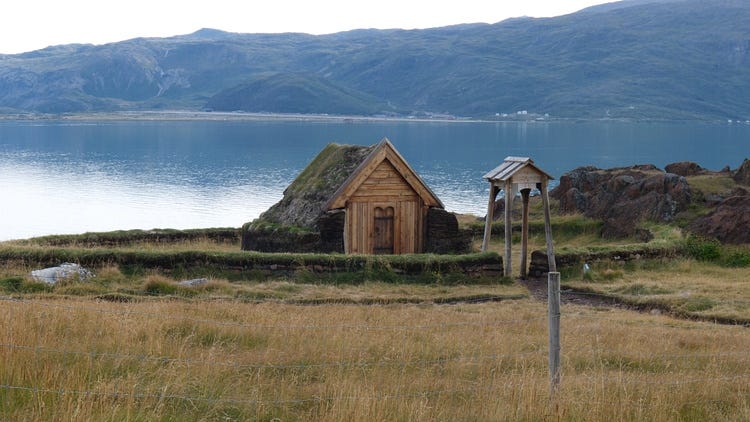
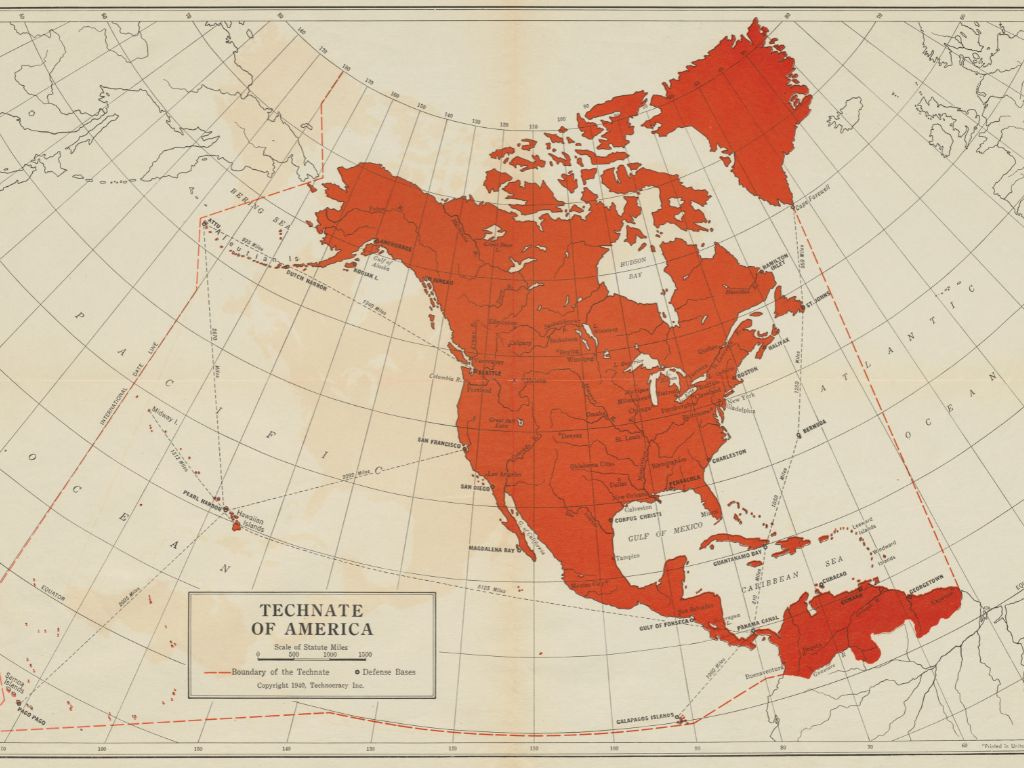
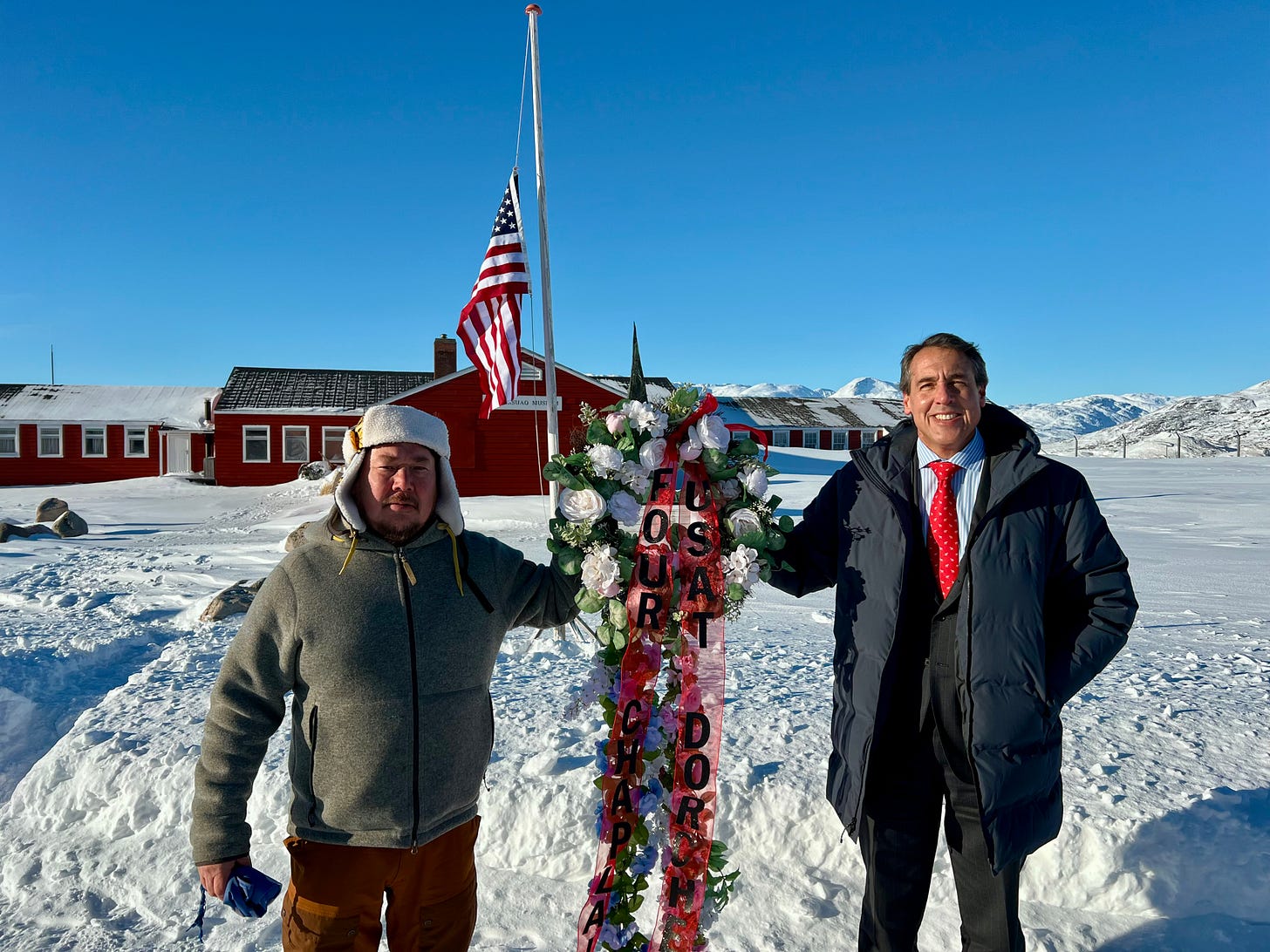
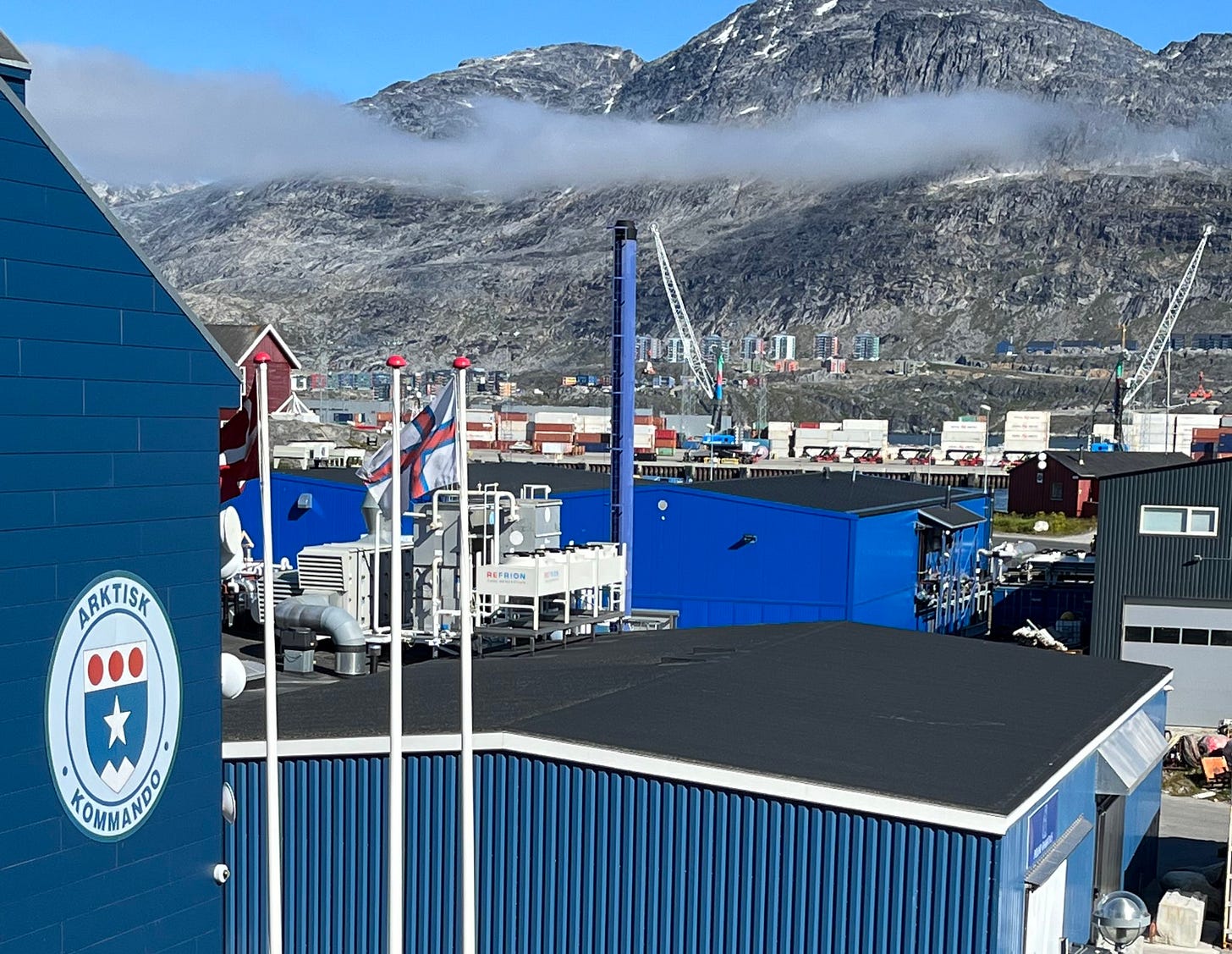
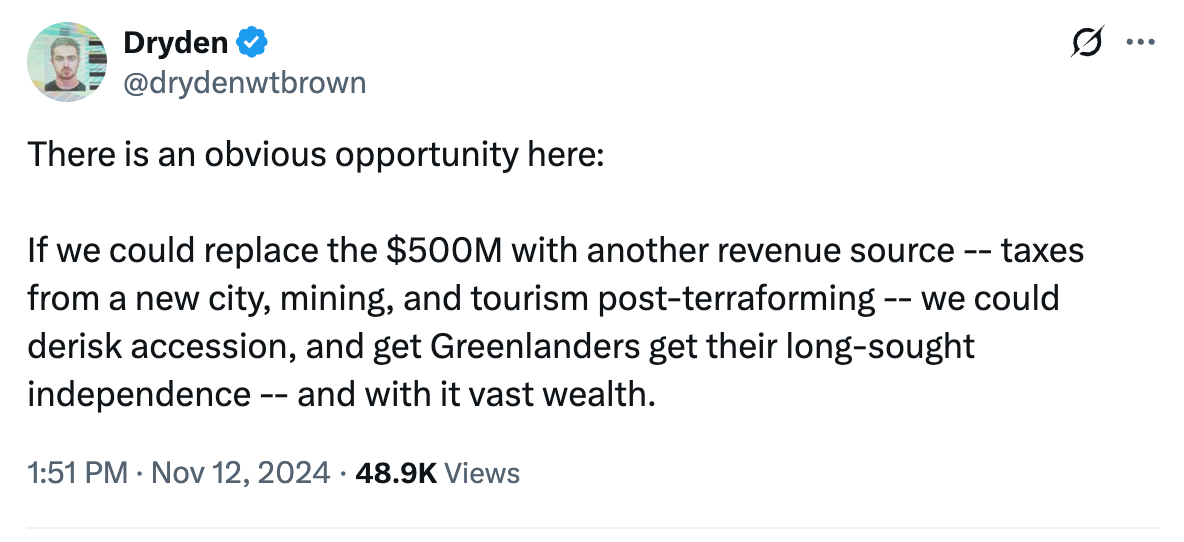
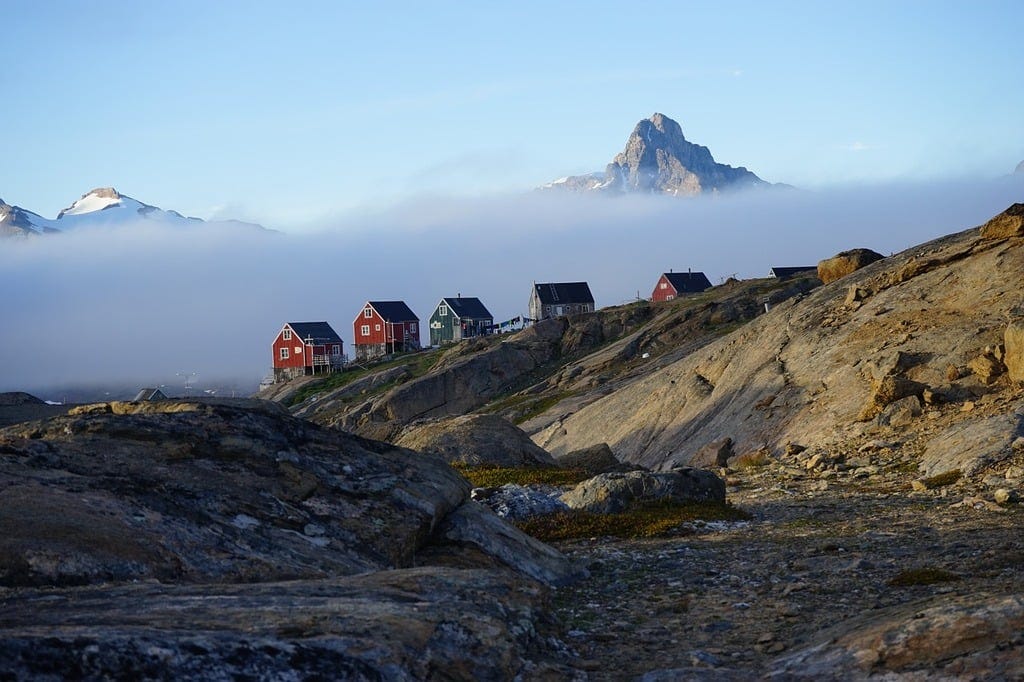
Everyone has a small streak of megalomania. We all envision how we could make the world a better place. If you have more money than you could ever spend, it is relatively easy to start thinking about tinkering.
It isn't fundamentally any different than participating in any other political activity. We contribute to things we believe in. Whether it is tithing, giving to a charity, contributing to a political candidate, or any other public work. Once you get past fulfilling your basic needs, I am more concerned about those who wouldn't feel drawn to making the world a better place.
The alternative is just sitting back and hoping that the people in charge will do good. Sometimes it works. Sometimes it is unfounded optimism. Many times it a mixed bag. You really can't just consider a government as being some ultimate authority. If we had done that, we would still have slavery. If we had taken a hands off approach, World War II, the world would not have been a better place.
We have some crazy ideas about the "Noble Savage." Granted, it is a fine line. People are not just some zoological exhibit. Are we doing the people of Andaman Island or in the Amazon Basin any favor by keeping them as a nature preserve? Should we withhold the choice from them to become part of the modern world? Should we allow places to be ruled by gangs and cartels and wash our hands of it as being an "Alternate world view" to be tolerated? Personally, I prefer the model that the Amish follow with their Rumspringa where they young are sent out to see the world and make the choice on their own whether to come back to living their isolated lifestyle.
We live in interesting times. We have those that are entrenched in power and give lip service to democracy all the while subverting it. They say that they want to help the poor but also apparently get rich on the money that was supposed to help them.
Look no further than what is going on in Germany right now. A party that the establishment doesn't like was blocked from the democratic process as being "populist far right." Just by coincidence, 7 of their candidates for the coming elections just all happend to die at the same time. Isn't it the whole point of democracy for the people to choose their own government? What we have is the appearance of democracy as long as the vote goes the way that those in power want it to go. They throw around the label of "Far Right" which apparently means anyone who dares to question the status quo.
Techno-fascist, commie-fascist. Techno-fascist, commie-fascist. Hyper-agitate on social media, rinse, repeat. What a wonderful variety of choices we now have in our of our "elections."